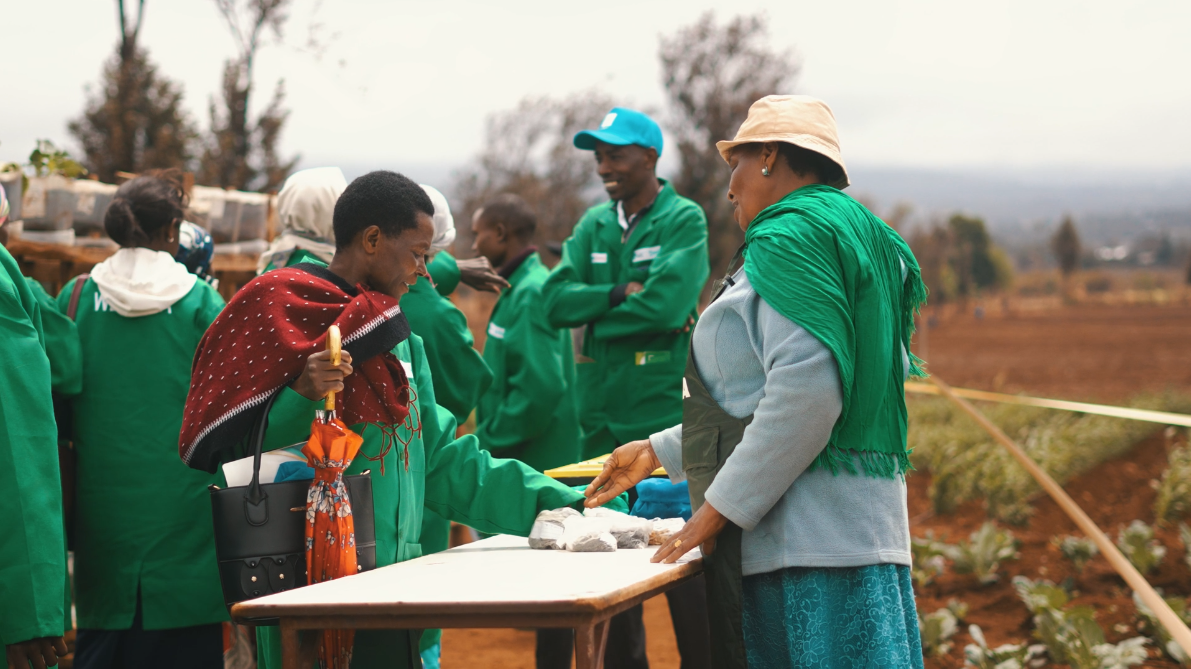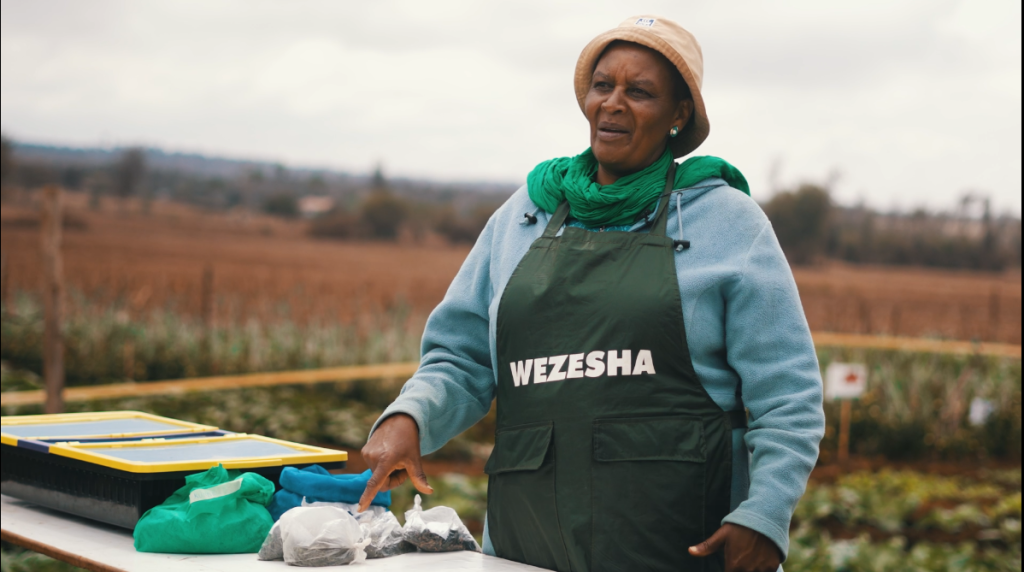
Ann Kyalo, a resident of Airstrip Village in Loitoktok, stumbled upon a life-changing opportunity when she heard about the Wezesha program from a friend. Curiosity piqued, she decided to explore further and visited the Nkama Demo Farm to understand what it had to offer. Little did she know that this visit would mark the beginning of a transformative journey.
The Wezesha program, with its focus on empowering women through education and skills training, captured Ann’s interest right from the start. As the Home Economics lessons commenced, Ann found herself drawn to the wealth of knowledge being shared. It was evident that there was so much she had yet to learn, particularly in areas like kitchen gardening and vegetable preservation.
The concept of a vertical kitchen garden resonated deeply with Ann, inspiring her to take immediate action. Armed with newfound knowledge, she embarked on creating her first garden, determined to grow fresh produce for her family. Within just two months, Ann’s efforts bore fruit – quite literally. Her garden yielded an abundance of vegetables, far exceeding her expectations.
However, Ann’s ingenuity didn’t stop there. Recognising the need to make the most of her harvest and minimise waste, she ventured into the realm of vegetable preservation. Turning her kitchen into a makeshift laboratory, Ann experimented with the preservation techniques she had been taught at the Wezesha training until she perfected the skill.
“When your farm hands you excess vegetables, don’t let them go to waste,” Ann remarks with a smile. “Instead, preserve them for the future.”
Driven by a desire to share her newfound skills and knowledge with others, Ann took on the role of a community educator. Inspired by the proverb, “When you educate a woman, you educate the whole nation,” she initiated kitchen garden projects within her village. Through hands-on workshops and demonstrations, Ann empowered her neighbours to embrace sustainable practices and take control of their food security.
“We now have three women’s groups dedicated to kitchen gardening and vegetable preservation,” Ann proudly declares. “Thanks to Wezesha, our village is thriving.”

Reflecting on the process of vegetable preservation, Ann explains the simple yet effective method employed by her community. “After washing and chopping the vegetables, we immerse them in hot salty water for a few minutes before cooling and drying them under shade,” she elaborates. “It’s a straightforward process that yields remarkable results.”
Looking to the future, Ann and her community aspire to enhance their preservation efforts further by investing in a solar-powered vegetable dryer. With this innovation, they aim to scale up production, meet market demands, and generate additional income for their families.
“We dry all sorts of vegetables and herbs,” Ann shares enthusiastically. “And believe it or not, even carrots can be dried!”
In closing, Ann offers words of encouragement to women everywhere: “Pick a skill, learn it, and put it to use. Start a kitchen garden if you can. It’s not just about growing food; it’s about nurturing communities, promoting sustainability, and empowering women.”
Ann’s journey exemplifies the transformative power of education and community-driven initiatives. Through the Wezesha program, she has not only improved her livelihood but has also become a catalyst for positive change within her village. As her story demonstrates, when individuals are equipped with knowledge and skills, they have the power to transform their lives and uplift their communities.
